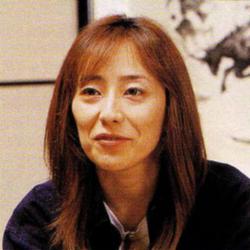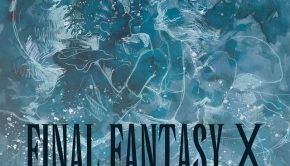Noriko Matsueda Profile
 |
Also Known As: 松枝 賀子 (まつえだのりこ) |
| Date of Birth: December 18, 1971 (Tochigi) |
|
| Residence: Tokyo |
|
| Game Works: Front Mission, Racing Lagoon, Final Fantasy X-2 |
|
| Official Site: N/A |
History
| Organisation | Type | Tenure | Role |
| Square | Game Developer | 1994 – 2003 | Composer |
| None | N/A | 2003 – | Retirement |
Biography
Noriko Matsueda is a retired game music composer known for creating several jazz and orchestral scores for Square. Born on December 18, 1971 in Tochigi, Noriko Matsueda received a scholarship in music at the age of three and went on to study the piano and Electone organ. Composing soon became a source of personal expression and, influenced by George Gershwin, Herbie Hancock, and Chick Corea, she developed a jazz style emphasising melodic hooks, pronounced use of the piano and electronic instruments, and a carefree attitude. Also influenced by symphonists such as Igor Stravinsky and Gustav Mahler, Matsueda’s eclectic musicality is often remarked to be one of her strengths. She notes that ’the best qualities of a composer are their curiosity and sensitivity’, though freely confesses to once being capricious. She refined and diversified her styles by taking various composition and performance courses at the Tokyo Conservatoire Shobi, where she also met her long-term composing partner and future husband Takahito Eguchi. Friendly rivals at the time, Matsueda respected her partner’s attractive musical style and imagination, and felt it would be pleasant to collaborate with him after graduation.
Matsueda joined Square in 1994 at the height of the Super Nintendo era. Then a relatively small company, she was able to interchange working at the company’s Tokyo premises with work from her comfortable studio at home. Her earliest score was 1995’s Front Mission with Yoko Shimomura, where she created a number of rousing action cues and jazz-tinged setting themes. She subsequently offered the stylistically distinctive “Boss Battle 1” to Chrono Trigger, arranged by Nobuo Uematsu. Matsueda’s first solo work was 1995’s Bahamut Lagoon, where she created a series of quasi-orchestral themes combining militaristic rhythms with charming melodies. This score also represented Matsueda’s first professional relationship with Takahito Eguchi, orchestrator for the album’s bonus disc. Matsueda subsequently created her first PlayStation composition in 1996 with Tobal No. 1’s “Tower Block,” unused in the game, before creating the entire score for Front Mission Second the following year. A landmark work technologically and musically, it featured well-developed and atmospheric themes that convincingly used orchestral instruments; it provided a captivating accompaniment to a game representing futuristic urban warfare while adding maturity and originality to a key Square series.
Matsueda changed direction in 1999 with the score for the racing RPG Racing Lagoon. Marking her first major collaboration with Eguchi, Matsueda was responsible for everything but the battle, opening, and ending themes. She captured the alluring but dangerous nature of illegal racing through Japan’s bays and metropolises with a wide range of jazz-influenced tracks. The final score was a fascinating departure from Square’s familiar sound. Matsueda and Eguchi collaborated once again for the score to PlayStation 2’s beat ’em up The Bouncer in 2000. Here, they took a more equal share of the music and often arranged each other’s works, though their specific contributions remains an industry secret. Its score featured dramatic acoustic compositions and a series of rock, electronica, and jazz fusions. The overall project was a massive one for Matsueda, especially given the volume of material unused in the game and the numerous post-production demands. Afterwards, the artist produced two motivating songs for the Final Fantasy X Vocal Collection and took a liberal approach throughout her final solo score — creating 25 pieces of mostly jazzy background music for Square’s PlayOnline viewer used for Final Fantasy XI and Tetra Master.
Matsueda reunited with Eguchi to create her final game score for Final Fantasy X-2 in 2003. The composer complemented the girly tone of the game with various upbeat jazz improvisations and other extravagant experiments. However, she also produced some more mature orchestral themes to complement the game’s settings and action sequences. While the soundtrack was a considerable commercial success, it received a hostile response from many consumers; the decision to replace the composers and themes of the lauded score for Final Fantasy X certainly contributed to the polarisation. Matsueda subsequently returned to produce new music on the game’s international version and also worked closely with Eguchi on the series’ promotional singles, vocal collections, and piano collection. The composer nevertheless found her final roles at Square extremely stressful — to the extent that her sleep, appetite, and skin declined — contributing to her decision to quit the company with Eguchi in 2003. Matsueda has apparently retired completely from the industry, though her partner continues to pursue scoring and other productions. Having become lovers during their time together at Square, Matsueda married Eguchi in 2009.
References:
– Various Game & Album Credits
– VGMdb Discography
– Interview with RocketBaby (English, June 2001)
oopy; Biography by Chris Greening (September 2007). Last updated on June 8, 2011. Do not republish without formal permission.
Posted on June 8, 2011 by Chris Greening. Last modified on March 21, 2014.














